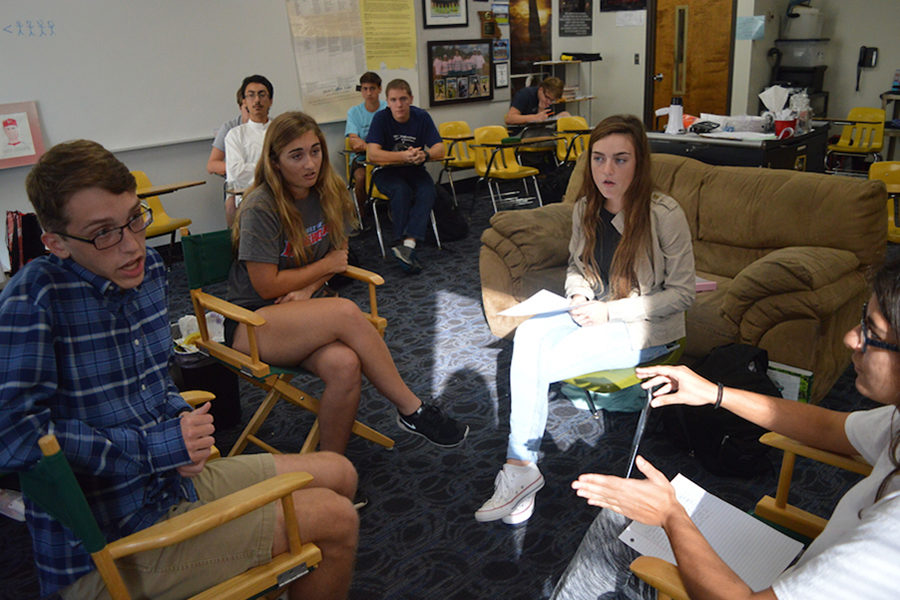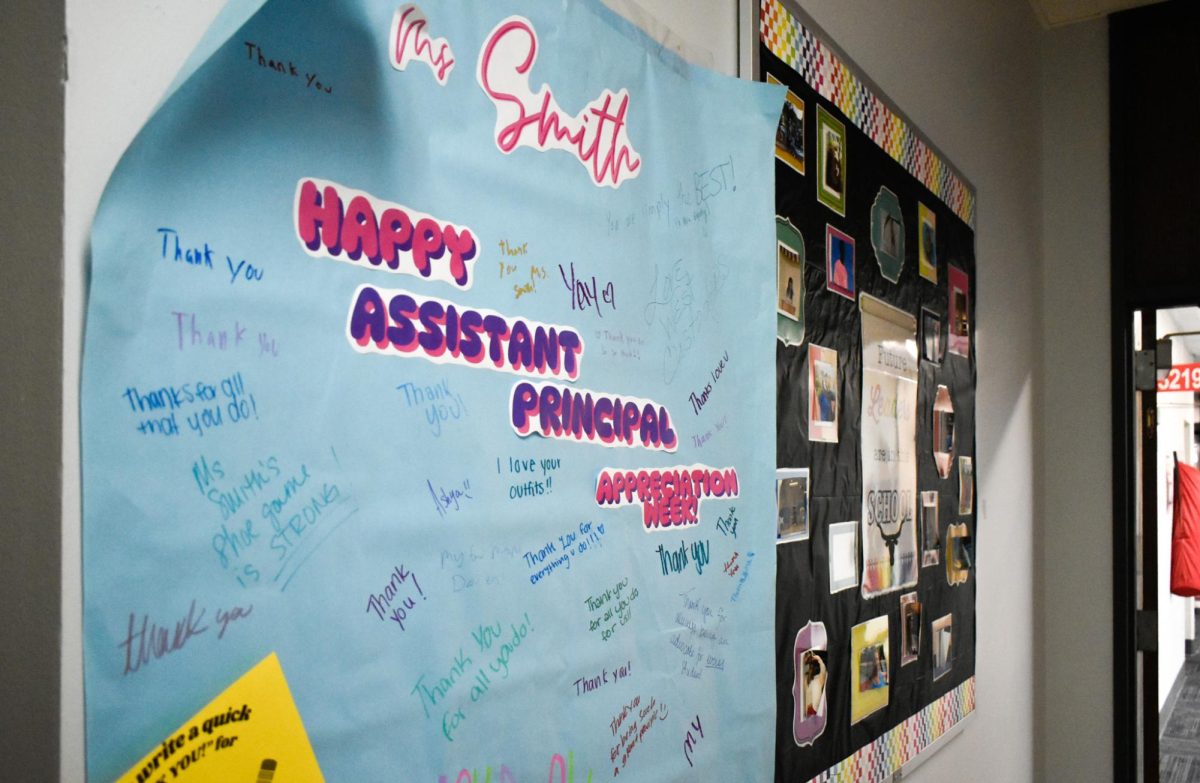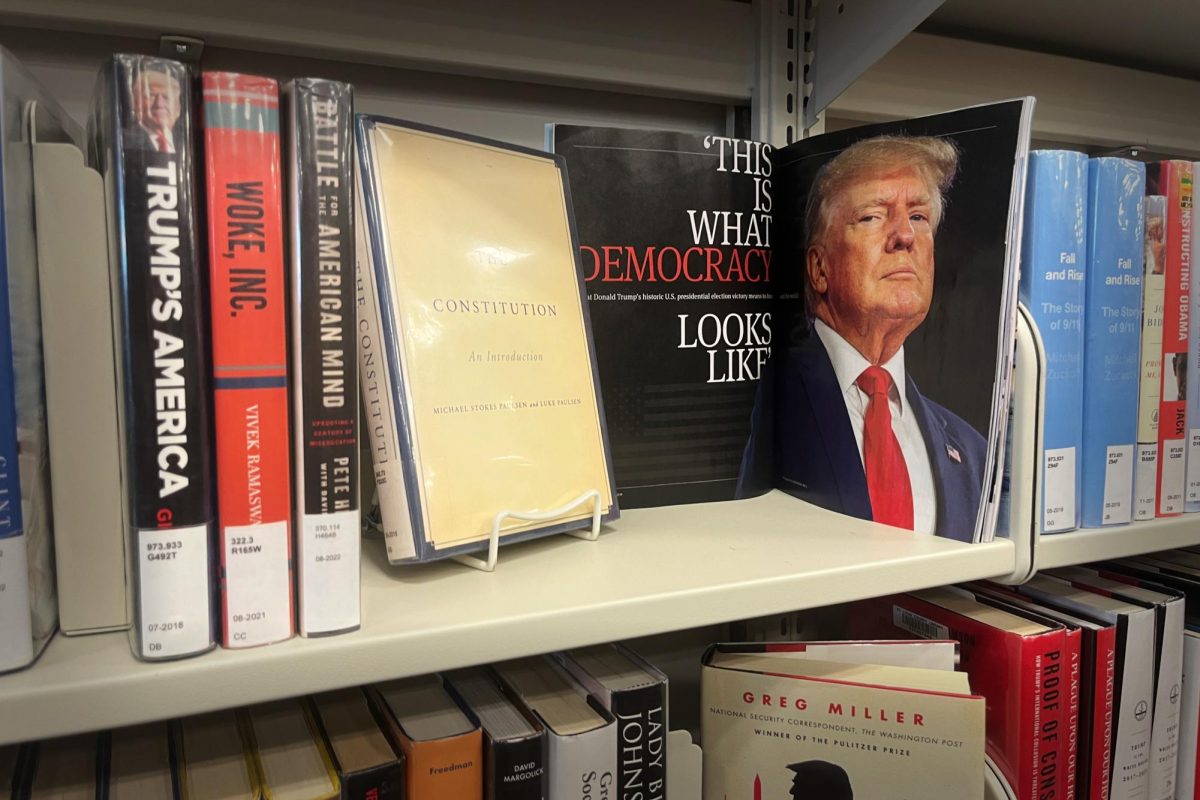Students sitting around, sharing their feelings once a month, with students they barely know and teachers they barely see… wonderful.
Emphasizing building character in the community, Common Ground is an excellent idea on paper. Character education helps students become better citizens of the world and this manifests itself in an increased awareness of our own school’s atmosphere and that of our community.
Despite having good intentions for building character, a noble and needed goal, Common Ground has fallen short. The positive effects of Common Ground are nowhere to be seen and students dread participating in the character education activities. In fact, according to a Pathfinder survey, of 200 students, only one percent of students stated that they enjoy Common Ground. The main issues with Common Ground are that the curriculum rushes into topics and issues, the activities are dull and boring and a lecture-like environment persists. This is a recipe for disaster; students are not being fully engaged and the environment produces very subpar results. For Common Ground to be effective and worth the valuable time that it takes up, changes must be made.
Although Common Ground should cover sensitive and tough topics, the implementation of these lessons has fallen short in the past. For instance, in the November lesson, students participated in an activity called ‘What Shape are you?” The lesson included students moving to different corners of the room to identify as a certain shape depending on given character traits. The purpose of ‘What Shape are you?’ was to encourage students to accept others differences, yet because the lesson was infamously boring for all parties involved, it remains a joke that shows how many students negatively perceive Common Ground.
On the other hand, issues such as building community and accepting others are essential topics to cover. These issues must be eased into for discussions that drive change to occur; teachers cannot expect students to suddenly be talking about very personal issues. This cannot be accomplished with Common Ground as it currently stands since we are expecting students to easily talk about what can be sensitive topics and issues for many with peers who they do not know well.
Activities are a large part of what can help Common Ground gradually cover sensitive topics. The more fun students have, the more they are willing to open up on sensitive issues. Common Ground always seems to have a dull vibe accompanying it, due mainly to the lecture-like environment that lingers. That environment includes activities that are consistently drop-dead boring for many students, but this could be alleviated if students had a say in what topics were covered in Common Ground. If students had a voice in planning their activities, they would have a personal investment in Common Ground and be much more likely to glean understanding as well as enjoy character education class. Ideally, Common Ground would be interesting, covering challenging topics spurring innovation and change to address those issues. With changes such as these, it has the potential to be a force for students to drive change in the community causing a positive change in character and the school as a whole.
Common Ground has potential, but intentions alone cannot fix the issues at hand. These problems truly need to be solved for Common Ground to accomplish its intended purpose of character development and creating change. These glaring issues with Common Ground must be addressed and responded to for any positive results to be accomplished.



![Dressed up as the varsity girls’ tennis coach Katelyn Arenos, senior Kate Johnson and junior Mireya David hand out candy at West High’s annual trunk or treat event. This year, the trunk or treat was moved inside as a result of adverse weather. “As a senior, I care less about Halloween now. Teachers will bring their kids and families [to West’s Trunk or Treat], but there were fewer [this year] because they just thought it was canceled [due to the] rain. [With] Halloween, I think you care less the older you get,” Johnson said.](https://pwestpathfinder.com/wp-content/uploads/2025/10/DSC00892-1-1200x800.jpg)
![Leaning on the podium, superintendent Melissa Schneider speaks to Parkway journalism students during a press conference. Schneider joined Parkway in July after working in the Thompson School District in Colorado. “My plan [to bond with students] is to get things on my calendar as much as possible. For example, being in [classes] is very special to me. I am trying to be opportunistic [meeting] kids [and] being in [the school] buildings. I have all the sports schedules and the fine arts schedules on my calendar, so that when I'm available, I can get to them,” Schneider said.](https://pwestpathfinder.com/wp-content/uploads/2025/09/IMG_5425-1200x943.jpeg)


![Red, white and blue, the American flag holds the values of our democracy. The fight that we once endured has returned, as student journalists and senior correspondents across the country are losing their voices due to government control. “[Are] the White House and [the] government limiting free speech [and] freedom of the press? Yes [they are],” chief communications officer of the Parkway School District and former journalist Elisa Tomich said.](https://pwestpathfinder.com/wp-content/uploads/2025/03/Untitled-design-14.jpg)
![A board in the Parkway West counseling department displays pennants of selective universities. With a wide range of students interested in attending, it’s important that these schools have clear priorities when deciding who to admit. “[Washington University] had the major that I wanted, psychology, philosophy, neuroscience. That's a holistic study of the brain, and [WashU is] the only college in the world that offers that. That's the main reason I wanted to go; I got into that program,” senior Dima Layth said.](https://pwestpathfinder.com/wp-content/uploads/2025/02/Flag-1.png)

![Within the U.S., the busiest shopping period of the year is Cyber Week, the time from Thanksgiving through Black Friday and Cyber Monday. This year, shoppers spent $13.3 billion on Cyber Monday, which is a 7.3% year-over-year increase from 2023. “When I was younger, I would always be out with my mom getting Christmas gifts or just shopping in general. Now, as she has gotten older, I've noticed [that almost] every day, I'll open the front door and there's three packages that my mom has ordered. Part of that is she just doesn't always have the time to go to a store for 30 minutes to an hour, but the other part is when she gets bored, she has easy access to [shopping],” junior Grace Garetson said.](https://pwestpathfinder.com/wp-content/uploads/2024/12/DSC_0249.JPG-1200x801.jpg)

![Senior Sally Peters stands in the history hallway, contemplating her choices in the 2024 United States and Missouri elections on Nov. 5. As a member of Diplomacy Club, Peters has discussed key candidates and issues in contemporary American politics. “[As students], we're starting to become adults. We're realizing how much the policies that are enforced and the laws that make it through the House and Senate are starting to affect us. [Opportunities such as] AP [U.S.Government] and Diplomacy Club [make elections feel] a lot more real,” Diplomacy Club vice president and senior Nidhisha Pejathaya said.](https://pwestpathfinder.com/wp-content/uploads/2024/10/Flag-1-1.png)
